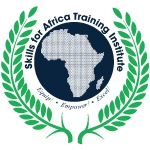|
|
GIS and Remote Sensing for Water Resource Management Training Course
USD 3,000 |
Venue: Nairobi
Other Dates
| Venue | Date | Fee | |
|---|---|---|---|
| Nairobi, Kenya | 14 - 25 Apr, 2025 | USD3000 | |
| Mombasa, Kenya | 14 - 25 Apr, 2025 | USD3500 | |
| Nairobi, Kenya | 05 - 16 May, 2025 | USD3000 | |
| Dubai, United Arab Emirates | 12 - 23 May, 2025 | USD5500 | |
| Nairobi, Kenya | 19 - 30 May, 2025 | USD3000 | |
| Nairobi, Kenya | 02 - 13 Jun, 2025 | USD3000 | |
| Mombasa, Kenya | 09 - 20 Jun, 2025 | USD3500 | |
| Nairobi, Kenya | 16 - 27 Jun, 2025 | USD3000 | |
| Nairobi, Kenya | 07 - 18 Jul, 2025 | USD3000 | |
| Johannesburg, South Africa | 14 - 25 Jul, 2025 | USD5500 |
The GIS and Remote Sensing for Water Resource Management training course offers professionals an in-depth understanding of how Geographic Information Systems (GIS) and remote sensing technologies can be applied to the management and conservation of water resources. With the growing challenges posed by climate change, population growth, and water scarcity, innovative solutions are crucial to manage and safeguard water systems. This course explores advanced GIS tools and remote sensing techniques to monitor, assess, and manage water resources efficiently. By learning how to utilize spatial data and satellite imagery, participants will be empowered to tackle water-related challenges and contribute to sustainable water management practices.
Target Audience
This course is ideal for:
- Water Resource Managers looking to enhance their ability to analyze and manage water resources.
- Environmental Scientists seeking to apply GIS and remote sensing to water systems.
- Urban Planners working on water management projects in cities and communities.
- Hydrologists and Geographers interested in utilizing remote sensing and GIS technologies for water-related research and analysis.
- Government Agencies and NGOs involved in water management, conservation, and policy formulation.
- Researchers and Academics studying water resources or environmental science.
Course Objectives
By the end of this course, participants will:
- Understand the Basics of GIS and Remote Sensing: Learn the fundamental principles and technologies behind GIS and remote sensing and how they are applied to water resource management.
- Develop Skills in Water Resource Data Collection: Acquire the knowledge to collect and process water-related data using satellite imagery, aerial photography, and GIS platforms.
- Master Water Availability Analysis: Gain expertise in using GIS to assess the availability of surface water and groundwater resources.
- Utilize Remote Sensing for Water Quality Monitoring: Learn how to use remote sensing data for monitoring water quality parameters such as turbidity, temperature, and pollutants.
- Implement Water Conservation Strategies: Understand how GIS can support water conservation efforts by identifying areas with high water usage or potential leaks.
- Assess Flood and Drought Risks: Gain the ability to use GIS tools to predict flood zones and drought conditions, helping to reduce water-related disasters.
- Apply GIS to Integrated Water Resource Management (IWRM): Develop strategies for managing water resources in a sustainable and integrated manner using GIS.
- Analyze the Impact of Climate Change on Water Resources: Learn to assess and model the effects of climate change on regional water availability and quality using GIS and remote sensing data.
- Create Water Management Plans: Build the capacity to create data-driven water management plans for regions or cities, ensuring optimal and sustainable use of water resources.
- Integrate GIS with Water Governance: Understand the role of GIS in supporting decision-making, policy development, and governance for water management.
- Enhance Decision-Making Using GIS: Learn how to make informed decisions on water resource allocation, management, and conservation based on spatial data analysis.
- Use GIS for Water-Related Disaster Risk Management: Implement GIS tools for predicting and managing water-related disasters such as floods and droughts.
Through hands-on learning and practical case studies, participants will gain the skills needed to apply GIS and remote sensing to solve complex water resource management challenges, ensuring the sustainable use and protection of water resources for future generations.
Duration: 10 Days
Course Content
Introduction to GIS and Remote Sensing
- Overview of GIS and Remote Sensing technologies
- Key concepts: Spatial Data, Satellite Imagery, Aerial Photography
- The role of GIS and remote sensing in water resource management
Water Resource Management Fundamentals
- Types of water resources: surface water, groundwater, and water quality
- Challenges in water resource management
- Sustainable management practices and policy development
Basic GIS Concepts and Tools for Water Resources
- GIS software overview: ArcGIS, QGIS
- Data types: Vector and Raster data
- Basic GIS operations: Map creation, spatial analysis, and query tools
Remote Sensing Principles for Water Resource Applications
- Remote sensing concepts and techniques
- How remote sensing can be used to assess water resources
- Types of satellite imagery and their applications in water resource monitoring
Water Availability Assessment Using GIS
- Methods for assessing surface water availability
- Groundwater mapping and analysis
- GIS tools for watershed analysis and water body mapping
Water Quality Monitoring with Remote Sensing
- Techniques for using remote sensing to monitor water quality parameters
- Detecting turbidity, temperature, and pollutants via satellite data
- Case studies on water quality monitoring using remote sensing
GIS for Flood and Drought Risk Management
- Modeling flood risk areas with GIS
- Analyzing drought conditions and their impact on water availability
- Integrating hydrological models with GIS for disaster management
Mapping and Monitoring Wetlands with Remote Sensing
- Importance of wetlands in water resource management
- Remote sensing techniques for wetland mapping and monitoring
- Case studies on wetland conservation using GIS and remote sensing
Water Resource Conservation with GIS and Remote Sensing
- Identifying water-intensive areas using GIS
- Strategies for reducing water consumption based on GIS analysis
- Case studies on water conservation using spatial data analysis
Integrated Water Resource Management (IWRM) Using GIS
- Principles of Integrated Water Resource Management (IWRM)
- GIS tools for implementing IWRM strategies
- Collaborative approaches in water governance using GIS
Modeling Climate Change Impact on Water Resources
- Climate change and its effects on water availability and quality
- Using GIS and remote sensing to model climate change scenarios
- Predicting future water resource challenges under climate change
GIS for Water Governance and Policy Making
- The role of GIS in water management decision-making
- Using GIS to support water governance and policy development
- Developing water management strategies through data-driven decisions
Water-Related Disaster Risk Management with GIS
- Using GIS to predict flood and drought zones
- Creating emergency response plans using spatial data
- Remote sensing for disaster response and recovery in water management
Case Studies in GIS and Remote Sensing for Water Resource Management
- Real-world applications of GIS and remote sensing in water resource management
- Case studies of successful water management projects worldwide
- Lessons learned and best practices in GIS-based water resource management
Future Trends in GIS and Remote Sensing for Water Resources
- Emerging technologies: AI, machine learning, and big data in water resource management
- The future of satellite and drone-based water monitoring
- Innovations in GIS tools and remote sensing for sustainable water management practices
Training Approach
This course will be delivered by our skilled trainers who have vast knowledge and experience as expert professionals in the fields. The course is taught in English and through a mix of theory, practical activities, group discussion and case studies. Course manuals and additional training materials will be provided to the participants upon completion of the training.
Tailor-Made Course
This course can also be tailor-made to meet organization requirement.
Training Venue
The training will be held at our Skills for Africa Training Institute Training Centre. We also offer training for a group at requested location all over the world. The course fee covers the course tuition, training materials, two break refreshments, and buffet lunch.
Visa application, travel expenses, airport transfers, dinners, accommodation, insurance, and other personal expenses are catered by the participant
Certification
Participants will be issued with Skills for Africa Training Institute certificate upon completion of this course.
Airport Pickup and Accommodation
Airport pickup and accommodation is arranged upon request.
Terms of Payment: Unless otherwise agreed between the two parties’ payment of the course fee should be done 5 working days before commencement of the training.
Course Booking
Please use the “book now” or “inquire” buttons on this page to either book your space or make further enquiries.
| Nairobi | Apr 07 - 18 Apr, 2025 |
| Nairobi, Kenya | 14 - 25 Apr, 2025 |
| Mombasa, Kenya | 14 - 25 Apr, 2025 |
| Nairobi, Kenya | 05 - 16 May, 2025 |
| Dubai, United Arab Emirates | 12 - 23 May, 2025 |
| Nairobi, Kenya | 19 - 30 May, 2025 |
| Nairobi, Kenya | 02 - 13 Jun, 2025 |
| Mombasa, Kenya | 09 - 20 Jun, 2025 |
| Nairobi, Kenya | 16 - 27 Jun, 2025 |
| Nairobi, Kenya | 07 - 18 Jul, 2025 |
| Johannesburg, South Africa | 14 - 25 Jul, 2025 |
| USD 3,000.00 | |
Nixon Kahuria +254 702 249449
Tags: |
GIS Remote Sensing Water Resource Management Hydrological Modeling Watershed Analysis Satellite Imagery Environmental Monitoring |
Related Courses
 Disaster Response and Humanitarian Aid Monitoring Using GIS Training Course
Disaster Response and Humanitarian Aid Monitoring Using GIS Training Course
12 days, 07 - 18 Apr, 2025
Skills for Africa Training Institute
 Social Media Monitoring and Osint: Digital Intelligence Gathering
Social Media Monitoring and Osint: Digital Intelligence Gathering
12 days, 07 - 18 Apr, 2025
Skills for Africa Training Institute
 Effective Communication In Healthcare Training: Building Stronger Connections, Improving Patient Outcomes
Effective Communication In Healthcare Training: Building Stronger Connections, Improving Patient Outcomes
5 days, 07 - 11 Apr, 2025
Skills for Africa Training Institute
 Regulatory Compliance and Reporting: Mastering Financial Regulations
Regulatory Compliance and Reporting: Mastering Financial Regulations
12 days, 07 - 18 Apr, 2025
Skills for Africa Training Institute
Currency Converter



